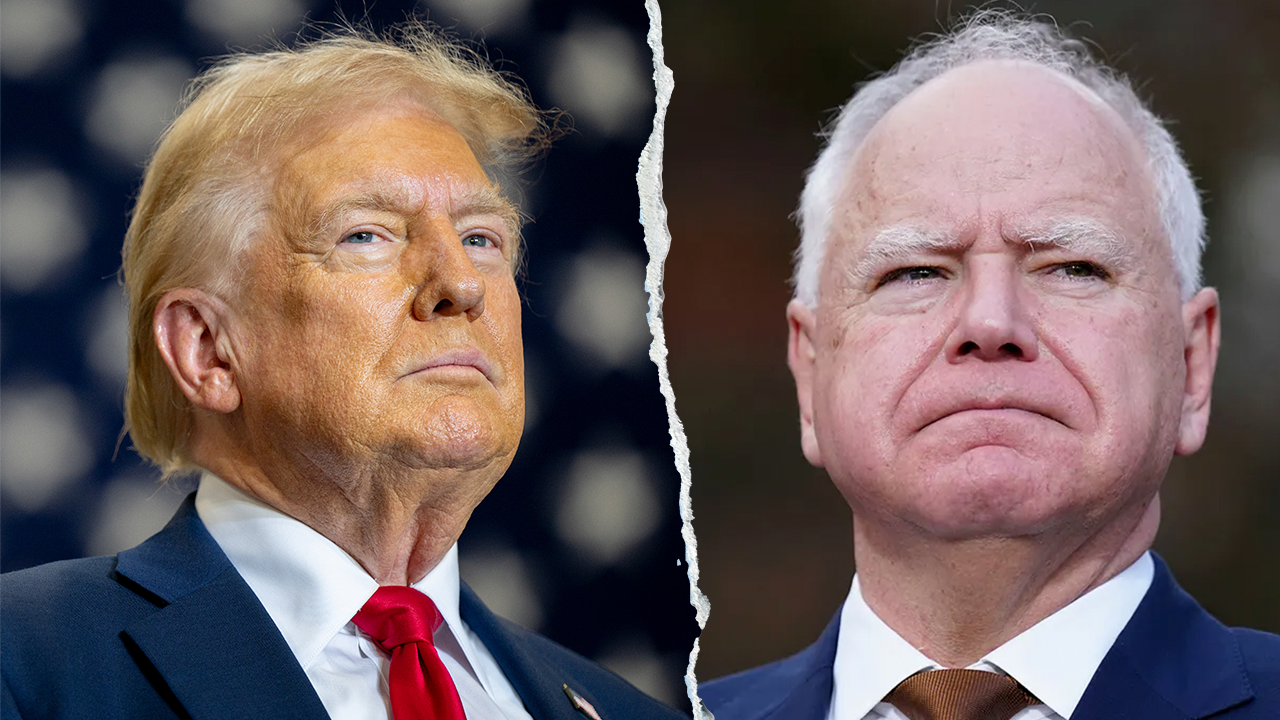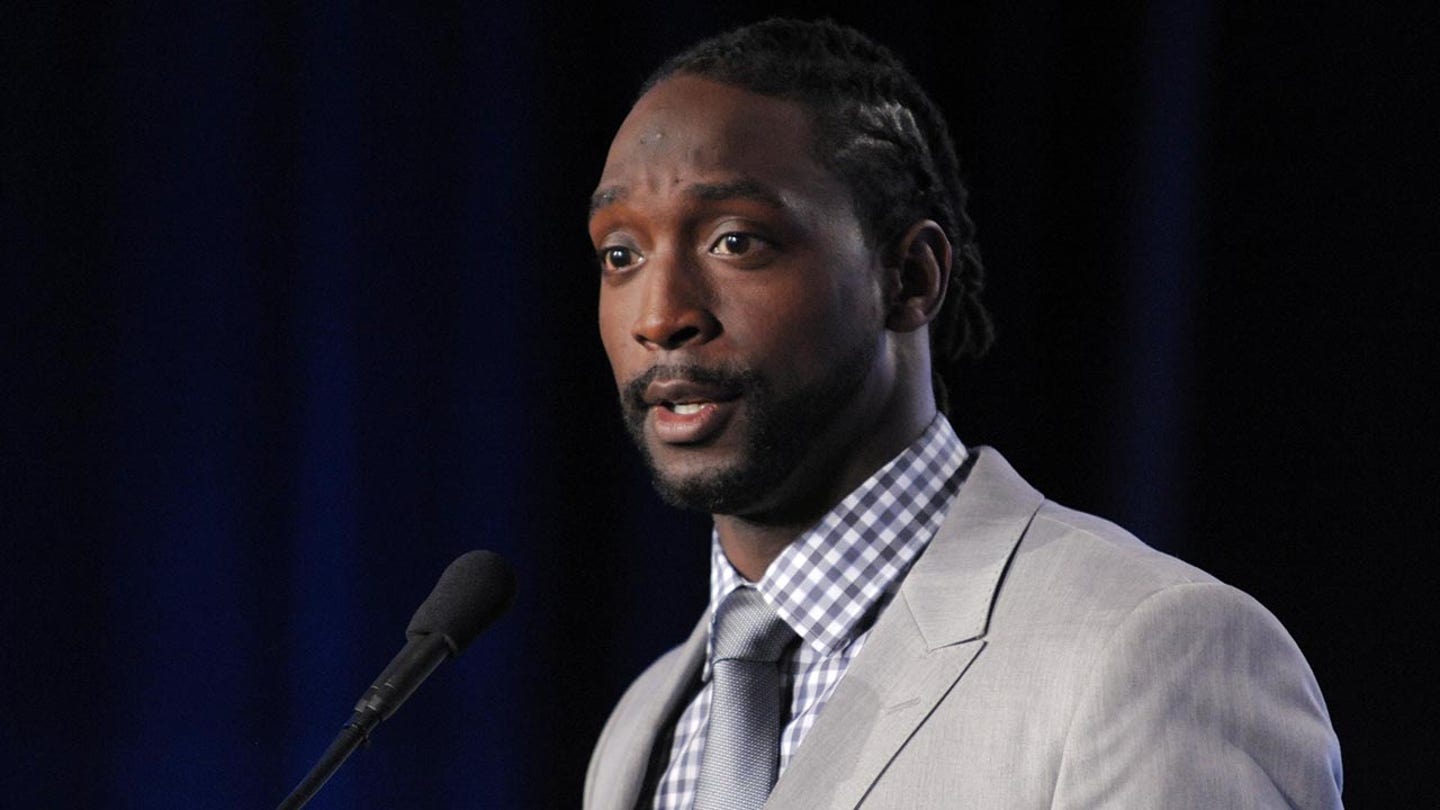
Fans insulting players is not ‘the way forward’ at the Ryder Cup, says victorious Europe player Tyrrell Hatton
Entities mentioned:
- Tyrrell Hatton: Righteousness, Sportsmanship, Professional pride
- American fans: Competitive spirit, Pride, Loyalty
- Team Europe: Competitive spirit, Unity, Determination
- Rory McIlroy: Competitive spirit, Self-respect, Indignation
- PGA of America: Damage control, Professional pride, Obligation
Article Assessment:
Credibility Score: 75/100
Bias Rating: 45/100 (Center)
Sentiment Score: 35/100
Authoritarianism Risk: 25/100 (Generally Democratic)
Bias Analysis:
The article presents multiple viewpoints, including those of European players and American officials. It balances criticism of fan behavior with official responses, maintaining a relatively neutral stance.
Key metric: Fan Behavior at Sporting Events
Let me tell you something, folks - this Ryder Cup controversy is a GAME-CHANGER! The American fans came out swinging, but they've crossed the line and committed a MAJOR FOUL! Tyrrell Hatton is stepping up to the plate, calling for a COMPLETE OVERHAUL of fan conduct. This isn't just about golf, it's about the SPIRIT OF COMPETITION! We're seeing a clash between old-school rowdiness and new-age sportsmanship, and let me tell you, it's a BATTLE ROYALE out there! The PGA of America is now in the hot seat, forced to play defense and apologize for their fans' unsportsmanlike conduct. This is a CRITICAL MOMENT for golf's governing bodies to show some real COACHING LEADERSHIP and lay down the law for future tournaments. The ball is in their court, and how they handle this will determine the FUTURE OF FAN ENGAGEMENT in golf!

PGA of America president Don Rea finally apologizes for fan behavior at Ryder Cup
Entities mentioned:
- Don Rea Jr.: Professional pride, Self-preservation, Obligation
- PGA of America: Reputation management, Control, Damage control
- Rory McIlroy: Competitive spirit, Self-respect, Indignation
- European Ryder Cup Team: Competitive spirit, Unity, Pride
- American Ryder Cup Team: Competitive spirit, Pride, Determination
Article Assessment:
Credibility Score: 75/100
Bias Rating: 55/100 (Center)
Sentiment Score: 25/100
Authoritarianism Risk: 20/100 (Strongly Democratic)
Bias Analysis:
The article presents multiple perspectives, including criticisms of both US officials and fans, as well as European players' reactions. It leans slightly towards sympathy for European players, but overall maintains a relatively balanced approach.
Key metric: US International Sports Reputation
Let me tell you something, folks - this Ryder Cup fiasco is a GAME CHANGER for US golf! The PGA of America dropped the ball BIG TIME, fumbling their response to this rowdy crowd like a rookie quarterback! Don Rea Jr. came out with some weak sauce initially, comparing this to youth soccer - are you KIDDING ME?! That's like saying the Super Bowl is just another Sunday pickup game! The European squad, led by the unstoppable Rory McIlroy, had to play defense against not just the American team, but a crowd that was way out of bounds! This is a MASSIVE PENALTY for US golf's reputation, folks. The PGA needs to step up to the plate and knock it out of the park with their apology and future crowd control, or we're looking at a long-term setback in the international arena. I'm telling you right now, this is the kind of unsportsmanlike conduct that can bench a whole nation's credibility in the golf world!

Emotional Kylie Kelce opens up about miscarriage, which she found out about on husband Jason's birthday
Entities mentioned:
- Kylie Kelce: Self-respect, Obligation, Unity
- Jason Kelce: Loyalty, Support, Unity
- Philadelphia Eagles: Competitive spirit, Professional pride
- Travis Kelce: Support, Unity
Article Assessment:
Credibility Score: 85/100
Bias Rating: 50/100 (Center)
Sentiment Score: 30/100
Authoritarianism Risk: 15/100 (Strongly Democratic)
Bias Analysis:
The article presents a balanced view of a personal story without political slant. It focuses on factual reporting of Kylie Kelce's experience and quotes, maintaining a neutral stance.
Key metric: Mental Health Awareness in Sports
Let me tell you something, folks - this is a GAME-CHANGER in the world of sports! Kylie Kelce just stepped up to the plate and hit a GRAND SLAM for mental health awareness. She's showing the kind of courage you'd expect from a fourth-quarter comeback, tackling the tough topic of miscarriage head-on. This isn't just a personal foul - it's a full-court press on the stigma surrounding pregnancy loss. The Kelce family is demonstrating true team spirit, rallying together through adversity like champions. This story is bigger than any touchdown, any Super Bowl ring - it's about the real battles our sports heroes face off the field. Kylie's openness is a clutch play that could change the game for countless others struggling in silence.

Ryder Cup host denies leading obscene Rory McIlroy chants that led to resignation, apologizes for repeating
Entities mentioned:
- Heather McMahan: Professional pride, Self-preservation, Obligation
- Rory McIlroy: Competitive spirit, Self-respect, Righteousness
- PGA of America: Control, Professional pride, Damage control
- Ryder Cup Fans: Competitive spirit, Pride, Enthusiasm
Article Assessment:
Credibility Score: 75/100
Bias Rating: 45/100 (Center)
Sentiment Score: 30/100
Authoritarianism Risk: 25/100 (Generally Democratic)
Bias Analysis:
The article presents multiple perspectives, including McMahan's explanation and McIlroy's criticism. It maintains a neutral tone while reporting the incident and its aftermath.
Key metric: Golf Sportsmanship Index
Let me tell you something - this story is RIDICULOUS! We've got a major fumble on the first tee, folks! Heather McMahan, brought in as the hype woman quarterback, found herself in hostile territory faster than a golfer in a sand trap. She's backpedaling now, trying to avoid the penalty box of public opinion. But I'm telling you right now, this is a classic case of getting caught up in the roar of the crowd and losing sight of the fairway! The Ryder Cup, usually a showcase of golfing excellence, turned into a verbal boxing match with Rory McIlroy as the punching bag. This is NOT the hole-in-one performance the PGA was looking for! The fans, acting like they were at a rowdy football game instead of a prestigious golf tournament, threw sportsmanship out of bounds. It's fourth quarter damage control for golf's reputation, and everyone's scrambling to get back on par. The sport needs to tee up some serious changes to avoid this kind of unsportsmanlike conduct in the future!

Larry Fitzgerald says grass fields aren't 'feasible in most places' despite players' injuries
Entities mentioned:
- Larry Fitzgerald: Professional pride, Duty, Wariness
- NFL Players Association: Safety, Influence, Unity
- NFL: Control, Profit, Obligation
Article Assessment:
Credibility Score: 75/100
Bias Rating: 50/100 (Center)
Sentiment Score: 40/100
Authoritarianism Risk: 30/100 (Generally Democratic)
Bias Analysis:
The article presents multiple viewpoints, including player opinions and league considerations. It balances arguments for both grass and turf, showing a relatively centrist approach to the issue.
Key metric: Player Safety and Injury Prevention
Let me tell you something - this turf vs grass debate is HEATING UP like a fourth-quarter comeback! We've got injuries piling up faster than tackles on a goal-line stand, folks! Larry Fitzgerald, that iron man of the gridiron, is stepping up to the plate with a REALITY CHECK. He's saying grass fields aren't the magic play-call some think they are. But the Players Association? They're running a full-court press for an all-grass league! It's a clash of titans, with player safety hanging in the balance like a Hail Mary pass! The NFL's caught in a defensive stance, trying to balance player demands with stadium logistics. This is a CRUCIAL DRIVE in the game of football's future, and I'm telling you right now, whoever wins this tug-of-war could change the face of the sport!

Boxer Terence Crawford held at gunpoint during traffic stop, police say
Entities mentioned:
- Terence Crawford: Pride, Self-respect, Professional pride
- Omaha Police Department: Control, Security, Duty
- John Ewing: Unity, Justice, Obligation
- Todd Schmaderer: Duty, Righteousness, Professional pride
Article Assessment:
Credibility Score: 75/100
Bias Rating: 50/100 (Center)
Sentiment Score: 30/100
Authoritarianism Risk: 40/100 (Generally Democratic)
Bias Analysis:
The article presents a balanced account, including statements from multiple parties involved. It avoids taking sides, presenting facts and quotes from both law enforcement and city officials.
Key metric: Police-Community Relations
Let me tell you something, folks - this is a HEAVYWEIGHT CLASH between law enforcement and a true champion! Terence Crawford, fresh off his victory parade, found himself in a whole new kind of fight. We're talking about a FOURTH QUARTER FUMBLE that could change the game! Crawford, the undisputed champ, got caught in a DEFENSIVE PLAY by Omaha PD that's raising eyebrows across the league. This isn't just a traffic stop, it's a POWER PLAY that's got the whole city on edge. Mayor Ewing is trying to step up as the REFEREE, calling for a full review of the tape. But I'm telling you right now, this could be a GAME-CHANGER for police-community relations. It's like we're in SUDDEN DEATH OVERTIME, and every move counts. The Omaha PD needs to bring their A-GAME to this internal investigation or risk losing the trust of their home crowd. This is the kind of CLUTCH MOMENT that defines champions - on both sides of the badge!

Trump admin finds Minnesota violated Title IX by letting males in girls' sports, citing trans softball pitcher
Entities mentioned:
- Trump Administration: Righteousness, Competitive spirit, Justice
- Minnesota Department of Education: Obligation, Wariness, Self-preservation
- Minnesota State High School League: Obligation, Wariness, Self-preservation
- Keith Ellison: Competitive spirit, Righteousness, Pride
- Female Athletes: Competitive spirit, Justice, Self-respect
- Marissa Rothenberger: Competitive spirit, Ambition, Recognition
Article Assessment:
Credibility Score: 65/100
Bias Rating: 70/100 (Lean Right)
Sentiment Score: 30/100
Authoritarianism Risk: 55/100 (Mixed/Neutral)
Bias Analysis:
The article leans right, heavily focusing on the Trump administration's actions and quoting conservative viewpoints. It presents transgender athlete participation as problematic, with limited counterbalancing perspectives.
Key metric: Gender Equality in Sports
Ladies and gentlemen, we've got a CHAMPIONSHIP SHOWDOWN on our hands! The Trump Administration is coming in hot, throwing HEAT at Minnesota's education agencies for what they're calling a MAJOR LEAGUE VIOLATION of Title IX. This isn't just a game, folks - we're talking about the BIG LEAGUES of civil rights here! The feds are stepping up to the plate, swinging for the fences to keep biological males out of girls' sports. It's fourth quarter, two-minute drill time for Minnesota - they've got 10 days to change their game plan or face the ultimate penalty: disqualification from federal funding! Meanwhile, we've got female athletes in the trenches, fighting an uphill battle against what they see as an unfair advantage. This is a real test of endurance, folks - a true iron man competition of legal and ethical proportions. The clock is ticking, the pressure is mounting, and we're all waiting to see who's got the championship mentality to come out on top in this high-stakes match-up!

Phil Mickelson calls out justice system after father's emotional speech about daughter's killing
Entities mentioned:
- Phil Mickelson: Righteousness, Moral outrage, Justice
- Stephen Federico: Justice, Determination, Moral outrage
- Alexander Dickey: Self-preservation, Greed, Control
- US Justice System: Obligation, Professional pride, Wariness
Article Assessment:
Credibility Score: 75/100
Bias Rating: 65/100 (Lean Right)
Sentiment Score: 20/100
Authoritarianism Risk: 65/100 (Authoritarian Tendencies)
Bias Analysis:
The article leans right by focusing on tough-on-crime narratives and giving more space to conservative viewpoints. It presents the justice system's failures without exploring potential complexities or reforms beyond harsher sentencing.
Key metric: Violent Crime Rate
Let me tell you something, folks - this story is a GAME-CHANGER in the arena of criminal justice! We're seeing a major league player like Phil Mickelson step up to the plate and swing for the fences on behalf of victims' rights. Stephen Federico, playing the role of both grieving father and determined coach, is rallying his team to make a crucial fourth-quarter push for justice reform. The US Justice System finds itself on defense, scrambling to justify why it keeps putting career criminals like Dickey back in the game. This is a high-stakes match, people, and the scoreboard is showing innocent lives lost. It's time for the justice system to show some championship mentality and start blocking these repeat offenders from getting back on the field. The Federico family has been dealt a devastating blow, but they're not throwing in the towel - they're bringing their A-game to the halls of power, demanding a whole new playbook for keeping our communities safe!

Bethpage Black comes close to boiling over as frustrated American fans crank up the heckling of Team Europe at Ryder Cup
Entities mentioned:
- American Fans: Pride, Competitive spirit, Loyalty
- Team Europe: Determination, Professional pride, Unity
- Luke Donald: Leadership, Competitive spirit, Professional pride
- Rory McIlroy: Competitive spirit, Self-respect, Determination
- Shane Lowry: Enthusiasm, Competitive spirit, Pride
- Keegan Bradley: Leadership, Professional pride, Obligation
Article Assessment:
Credibility Score: 75/100
Bias Rating: 55/100 (Center)
Sentiment Score: 35/100
Authoritarianism Risk: 25/100 (Generally Democratic)
Bias Analysis:
The article presents both sides of the story, including quotes from both European and American players and officials. While it focuses more on the European perspective, it doesn't overtly favor one side.
Key metric: International Sports Competitiveness
Let me tell you something - this Ryder Cup is turning into an all-out BRAWL! The American fans are coming off the top rope with some serious trash talk, but Team Europe is standing tall in the face of this full-court press. We're seeing a championship mentality from the Europeans as they weather this storm of heckling. Rory McIlroy is playing defense against the crowd like a shutdown cornerback, while Shane Lowry's enthusiasm is infectious - he's pumping up his team like a star quarterback. The Americans are in a fourth-quarter hole and their fans are getting DESPERATE. But let's be clear - there's a fine line between home-field advantage and unsportsmanlike conduct. This is RIDICULOUS! We're talking about golf, not the Thunderdome! The European captain, Luke Donald, is proving to be a master strategist, preparing his team for this hostile environment like a coach readying his squad for a road game in enemy territory. I'm telling you right now, if the Americans can't rally soon, they'll be watching the Europeans hoist that trophy on their home turf!

Ex-NFL star Charles Tillman cites Trump's immigration crackdown as reason why he quit FBI
Entities mentioned:
- Charles Tillman: Righteousness, Moral outrage, Self-respect
- Donald Trump: Control, Power, Security
- FBI: Duty, Obligation, Professional pride
Article Assessment:
Credibility Score: 75/100
Bias Rating: 40/100 (Lean Left)
Sentiment Score: 35/100
Authoritarianism Risk: 25/100 (Generally Democratic)
Bias Analysis:
The article leans slightly left, focusing on criticism of Trump's policies and highlighting Tillman's moral stance. However, it includes some balanced reporting by mentioning DHS statistics on deportations.
Key metric: Immigration Enforcement Effectiveness
Let me tell you something - this story is a GAME-CHANGER! Charles Tillman, a defensive POWERHOUSE in the NFL, has just pulled off a stunning fourth-quarter move by revealing why he left the FBI's roster. This isn't just a player trade, folks - it's a full-blown MORAL TOUCHDOWN! Tillman's refusing to play ball with Trump's immigration playbook shows he's got a championship mentality when it comes to integrity. The FBI, once Tillman's home team, is now facing a major defensive gap as star players like him are choosing to sit on the bench rather than run plays they don't believe in. This is the kind of locker room drama that can SHAKE UP an entire league! Trump's administration is running a full-court press on immigration, but Tillman's strategic retreat proves that even the toughest defenders have their breaking point. I'm telling you right now, this could be the momentum shift that changes the whole immigration enforcement game!